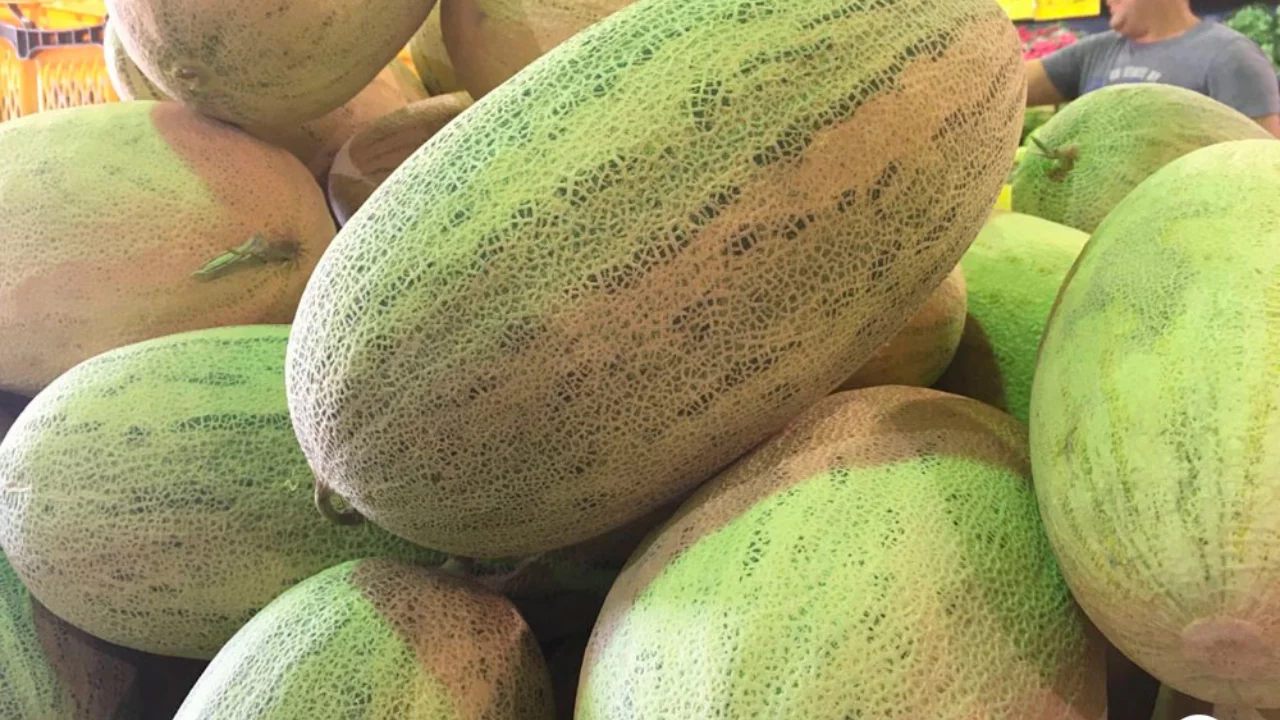Sweet melons sent to London aroused great interest in the market

Melons grown throughout the country are now appearing on the tables of British consumers. It was announced that the export conditions have been officially established.
In the first ten days of July this year, the first industrial-scale batch was sent by the national carrier Uzbekistan Airways from the capital to London. It is said that a total of 10 tons of selected melons were loaded on the flight.
It is reported that refrigerated containers were used for the cargo, and the temperature chain was monitored from the beginning of the flight to the destination. This helped the fruit to maintain its sweetness until it arrived.
In addition to hybrid varieties grown by local farmers, traditional sugar melons were also included in the export batch. The varieties are distinguished by their organoleptic taste.
It is noted that British buyers are interested in this product. It is said that the first batch was quickly sold out on supermarket test shelves.
The trading network will determine the volume of the next order based on the results of the trial batch. Negotiations are currently underway for free slots.
Certification was an important stage in the export process. The product passed phytosanitary control.
The nitrate content, sugar indicators and pesticide residues in the batch were compared with international standards. Laboratory protocols were sent in the required format.
Additional labeling requirements were met. The region of origin, live weight and harvest date were indicated on each box.
When transporting melons by air, the ratio of weight and volume is important. Palletizing schemes have been recalculated to optimize the load.
The cost of transporting fruit is high if it does not fit in one flight. However, fast delivery preserves the fresh taste.
For this reason, the pilot batch was shipped by air. At the next stage, mixed logistics - air plus road/rail - is being discussed for distribution in Europe.
A distribution scenario is being developed through the London logistics center to the northern and western regions of Great Britain. Agreements with distributors are underway.
In addition to sweet melons, other agricultural cargoes are also actively being shipped. Since the beginning of the year, the export of legumes has accelerated.
The dried fruit batch has expanded. Products such as raisins, dried grapes and dried apricots are being shipped in packages.
There is an interesting growth in the nut segment. There is a demand for chickpeas, mung beans, walnut kernels and apricot kernels.
During the cherry season, separate routes were used for delivery in frozen and freshly picked formats. Short-season products require fast logistics.
The country's enterprises have also expanded the range of processed fruits and vegetables in canned form. Leading UK retail chains have put some positions on the shelves.
BRC or similar quality standards are required to work with these chains. A number of producers are reported to have passed this audit.
Farmer clusters are modernizing deep sorting and packaging centers. The number of refrigerated warehouses is decreasing.
To maintain consistent quality, exporters are updating irrigation, fertilization, and harvesting technologies. GPS-tracked field maps are being introduced.
The practice of attaching a QR code to each batch through digital integration with laboratory networks is being tested. The consumer will be able to see the source of origin through the code.
According to the results of the first five months of this year, it was noted that agricultural product shipments to the UK have almost doubled. This is a big signal.
These growth factors consist of several blocks. The first block is agrotechnical modernization.
The second block is cleaning and packaging in accordance with international standards. The third block is improving logistics corridors.
Digital document flow is presented as the fourth block. Electronic certificates reduce delays in the written infrastructure at the border.
It is said that constant communication has been established with international buyer managers. The practice of field visits through video inspection has been put into practice.
For fast-ripening products such as melons, the accuracy of the harvest time is crucial. The time of removal from the ground is recorded in history.
Temperature loggers are installed inside the container. The data is downloaded when it reaches the destination.
If the cold chain is broken, the batch is worthless. Therefore, the control capacity is high.
An electronic declaration is sent in advance to quickly pass the phytosanitary scanner at British customs. This saves time. Read “Zamin” on Telegram!
Ctrl
Enter
Found a mistake?
Select the phrase and press Ctrl+Enter 




















